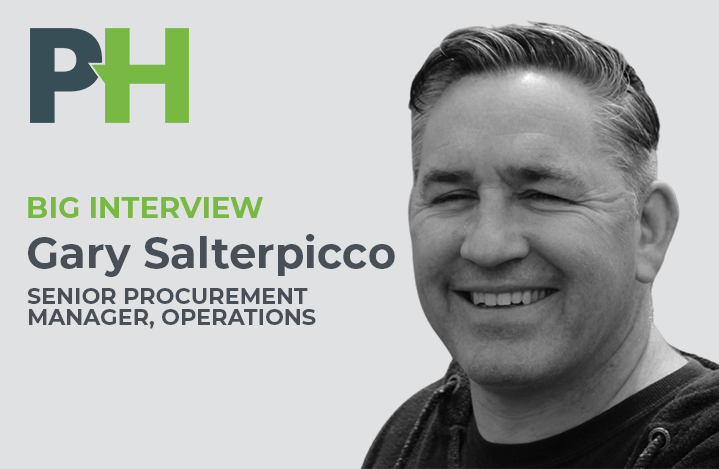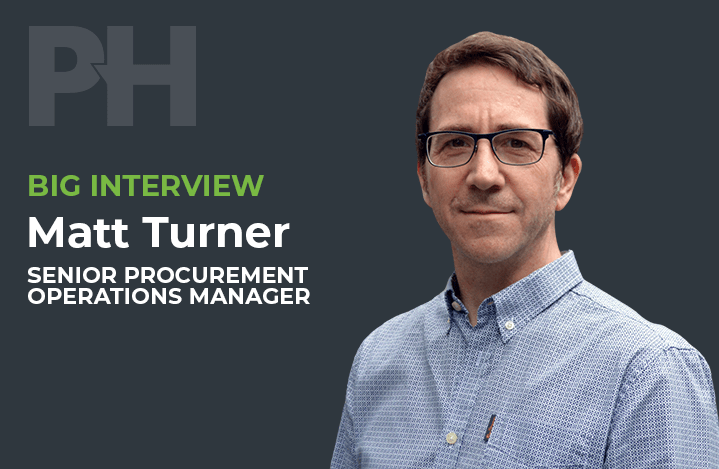In the first of Procurement Heads‘ blogs about sustainability, David Hazeldine spoke to Thomas Udesen – Co-Founder of the Sustainable Procurement Pledge and Chief Procurement Officer at Bayer.
“Sustainability is absolutely a hot topic, and the recent fallout of COVID has seen a significant divide happening across Procurement leaders – the ones who are going back in time to do the same old price first, and the ones that are saying it’s not that simple.
“We are seeing the best and the worst coming out of COVID and that’s why we need to use the current momentum to reeducate.
“Most young people get it quite intuitively. The challenge typically remains with some of the senior members who remain obstacles to change.
“Everything has its time and place and we wouldn’t be where we are had it not been for the Procurement leaders of the past. We should be thankful to them, but I think that the tools they had in their toolbox are not the ones that are relevant for the future. Life is different now and it will be very different soon.”
What was it that led you to co-found the Sustainable Procurement Pledge?
I share the concern that we humans are heading in the wrong direction and things need to change.
The topic of sustainability and climate change is therefore close to my heart, and I want to make sure that the next generations, including my own children, will have a safe future.
With the Climate Strike last year, people gathered on the streets, across the globe, to remind themselves that the biggest responsibilities we have are to sustain the planet and hand it over in a better state for the next generations.
I saw a video on LinkedIn, featuring David Attenborough and Jane Goodall, asking how can it be, that the most advanced species on the planet, ignore the warning signals and ultimately may destroy its own home and future. The message resonated so I shared the video and the response was outstanding.
A lot of Procurement leaders, academics and industry players came back and said we need to do more. Their encouragement provided the motivation to actually do something, so when I spoke with Bertrand Conqueret – CPO and President of Henkel’s Global Supply Chain – on the following Saturday morning foundational idea for the Sustainable Procurement Pledge was created.
We decided to formalise a pledge, based on the principles of the UN Global Compact. We engaged with several academics, and sustainability professionals across our organisations and reached out to Procurement multipliers and opinion makers to collect feedback and good ideas on how to deploy. Today’s SPP is the result of this super-inclusive process, the pledge was therefore created by many and intended for all.
Since then, thankfully, the Sustainable Procurement Pledge has resonated with people from across the world. The number of Ambassadors continues to increase every day.
What are your visions of where the SPP will go to?
What we wanted to achieve from the beginning was a professional grassroots movement that is particularly valuable for people who don’t benefit from working for companies that take this topic too seriously.
Henkel and Bayer take it very seriously so Bertrand and I are therefore privileged that we get to do what we believe is right. Unfortunately, the feedback we collect is that there are so many Procurement people out there, who as practitioners, don’t enjoy that support from their leadership.
So, we wanted to empower and equip our practitioners so they can work with their management to gradually change, but also actively make personal changes now.
So, by signing up for the pledge, it becomes an individual professional codex. You may not yet work for a company that acts comprehensively well enough, but you are standing up to your responsibility and making it known.
We estimate there are one million procurement people out there and our ambition is to have everybody sign up to the pledge principles and apply sustainable practices and their power for good.
Do you have a stage of development for the SPP?
The ambition is all anchored around the UN Sustainable Development Goals 2030, so that is what we are aiming for. We need to make that happen, otherwise, bad things are likely to happen.
We are comfortable that we drive actions, to capture the mind and hearts of people so that they enforce their power. We don’t want to compete with all other initiatives, we want to complement them.
Our wish is to endorse all the organisations, companies, NGOs and Governments who are doing something about sustainability and support them. I am convinced that if we achieve that, Procurement becomes part of the solution.
What are the challenges facing the SPP?
Some leaders across many organisations are only giving lip service to the topic.
Looking at their actions, it’s obvious that there’s no genuine appreciation of the importance, and that this is a long-term thing that they need to engage with and now.
Too many leaders and Procurement practitioners are caught up in the convenience of addressing other, more imminent, short-term challenges, Covid-19 is one of them where many people are saying it’s about survival so we go back to sweating the P&L only.
No doubt, we must support the survival of our companies, but we have to appreciate that we are not looking at a “Zero Sum” game here. Sustainable Procurement offers a great opportunity to eliminate waste and do things much more efficiently.
If you engage with the circular philosophy, you look for new ways of creating value, the proposition of your final product to your customers, patients, and farmers, for example, is one of superior sustainability profiling – it justifies a premium of sorts, it’s a different way of engagement.
CPOs and their teams are being pushed hard and they are busy. No doubt. So it’s not that I can’t understand that some are responding the way they are, but my fundamental belief is that they are not responding in a way that is appropriate or sustainable. They are not doing their job well enough – and that’s what we all need to change.
Sustainability is not only about being environmentally responsible, but it is also about being socially and economically responsible. If you are shooting yourself in the foot now, you won’t win the race tomorrow.
Some people are unfortunately caught in a very narrow definition of what the role of a CPO is – so SPP operates at two levels.
One is to empower and equip the practitioners who get it and are passionate but often don’t know where to start.
The second is working at the leadership level to make doubters or fence-sitters understand the complexity, and opportunity but also responsibility.
If we can’t win them over and become passionate Ambassadors, we can at least try to get them neutral to the idea and then let their teams drive progress. Procurement should evolve with a more responsible agenda.
Most CFOs and CEOs are totally rational, and sustainability is a rational topic, it is about how you sustain your company and operation long-term. CPOs who aren’t yet on board need to educate themselves so that they can influence and drive the agenda.
Nobody has a silver bullet, you don’t have to be embarrassed that the five-year plan isn’t thought through step-by-step, it shouldn’t prevent you from starting. We are all working through this super-complex topic, but we are all committed to the same goal and are prepared to share knowledge, that’s the philosophy we want.
With regards to partnerships with suppliers, yes it is about going from a transactional, arms-length relationship to having joint clarity on what are we playing for, and how we win together.
That happens through dialogue and values that are aligned and quite frankly making it known that there are certain behaviours and ways of doing things that are totally unacceptable in the modern world. We want to get rid of that very fast.
The CEOs and Board members are important and critical for any change in any company. The uniqueness of Procurement is that we can approach these leaders in two ways, one is through our functional role within our own companies and the other is as a leading participant in each B2B transaction.
All companies are selling products to somebody and each transaction touches Procurement. We need the Procurement person as our customers, however junior or senior, to articulate the expectations. The criteria should be that business here includes operating sustainably. This will eventually reach different Board members because it’s not just about their own operation being sustainable, it’s about maintaining an entry ticket to the market. Your Procurement peers, across the value chain, are critical to making it known how a business needs to be conducted.
If we manage to harmonise these expectations and articulate a united message along the whole value chain, then that’s really powerful and we will change business forever.
Have you engaged with CIPS and other professional bodies to see how it can be incorporated into membership criteria?
CIPS is very much engaged and we are in ongoing discussions on how we can collaborate to become more united and standardised.
Similarly, we are in regular discussions with different academic institutions and passionate Professors on how we can better teach the next generation of Procurement professionals about sustainability and hence equip them for the future.
While painful, I accept that some people are resistant and may never get on board. But if we can enthuse the next generation and give them the tools to be better, then that is an ambition worth fighting for.
How can the practitioners of today get involved in the Sustainable Procurement Pledge and embrace this?
We have defined 10 major challenges and we are consolidating quality content along with those challenges on our website www.spp.earth. We don’t do this in isolation, so we are reaching out to our community to share their knowledge.
We believe that it is important for practitioners to share their experiences and spread the word as Ambassadors. We encourage all our Ambassadors to constantly push the message within their networks and organisations.
We want to empower them to start dialogues and challenge unsustainable practices.
Challenging your organisation to become more sustainable is important, as is talking to suppliers about upping their game.
This raises procurement and supply chains’ profiles as industries to get into, doesn’t it?
Yes. I think so. You can see that with the profiles we are attracting.
We are engaging with more comprehensive thinkers, global citizens who take big topics seriously and ask what can they do to shape a better future. It makes Procurement and Supply Chains very attractive as functions.
It is already pretty cool, so add in sustaining the companies, helping with the bottom and top lines, helping with the license to operate, and driving the topic of purpose for the organisations – it starts to get really interesting!
When you go to hire what’s the definition of the type of person you look for?
We are very aware that the profile of the future is changing, but that’s been a gradual change and the way we’ve recruited has reflected that.
Changing the vocabulary of Procurement and the conversations we have is supercritical. We have a lot of Marketers working in Marketing Procurement, lawyers in Legal Procurement and Scientists in R&P Procurement, so it’s about that business partnering capability and knowing what world you are talking to.
We have reflected on this and the demographics of our organisation have subsequently changed. We are consolidating and automating a lot of our transactional activities, which are critical, so this has had a big impact as well.
The Procurement profile is therefore much more broad, strategic and innovative – and that’s a journey we’ve been on for a number of years now.
What is interesting about the pledge is at which point will people start asking “when did you join?”. If someone, possibly during an interview, asks about your values and beliefs around Sustainability, and your answer shows that you are not aware of the pledge or sustainable principles, then this may eventually have an impact. I don’t think many companies are doing this yet, but I would like that to become a question people ask one day soon.
At Procurement Heads, as Ambassadors for the pledge, we see the opportunity of talking to clients and candidates about the Sustainable Procurement Pledge
As recruitment consultants, you are the catalysts for asking if people have signed the pledge and getting it on their mindset – it’s amazing and your role is critical.
What I like is that we have people from across the world, it’s a universal movement, multi-industry and crosses all generations. I get goosebumps thinking of the possibilities.
Business as usual has for a long time been acceptable and you could progress keeping everything with the status quo. However, now is the time to make big decisions, are you going to be a part of the problem or the solution?
Ambassadors have chosen to be part of the latter.
Within the junior side of the Ambassadors, we have observed some anxiety around being open about having signed the pledge or joined the group – we need to encourage them if this is what they believe then make it part of their personal brand. I have no doubt that it adds tremendous value and positions them better for future opportunities.
What keeps you enthused about procurement?
I have from childhood been fascinated by the diversity of our world and trade.
Historically the Danes have facilitated business across cultures and tried to connect dots. That’s what my family have been doing for some generations and with that business-to-business has always fascinated me.
As a result, I left Denmark young as I was given the opportunity to experience the world through work. I ended up in the timber trading division of my first company, which meant that I lived and worked around the forest. Some of my first challenges were how to create value, eliminate poverty, and create an inclusive business in a responsible way.
I experienced the conflict between economic progress, local development and environmental protection first-hand. That’s how the passion grew.
My job took me to places across Europe, Africa and Asia before I completed an MBA and joined Johnson and Johnson Procurement in Switzerland. It was an amazing time with great colleagues and some fantastic bosses.
Seven years ago, I moved to Germany when the opportunity at Bayer came along. After a number of organisational changes, I eventually took over the Procurement function globally. As said earlier, I consider myself privileged to work for a company whose vision is “health for all, hunger for none”. What better vision can you possibly have?
I consider Procurement a community of like-minded professionals with an incredible potential to change the world. My purpose is to be there for the community and to add value as long as I can.
At some point, there’s only limited value that I can offer the procurement community, and eventually, I’m no relevant longer. This is the cycle of life; it must be like that, so that’s when I’ll happily let someone else take over so I can go sailing and enjoy the wonderful wildlife of Africa.
To find out more about the Sustainable Procurement Pledge and how to become an Ambassador, click here.






